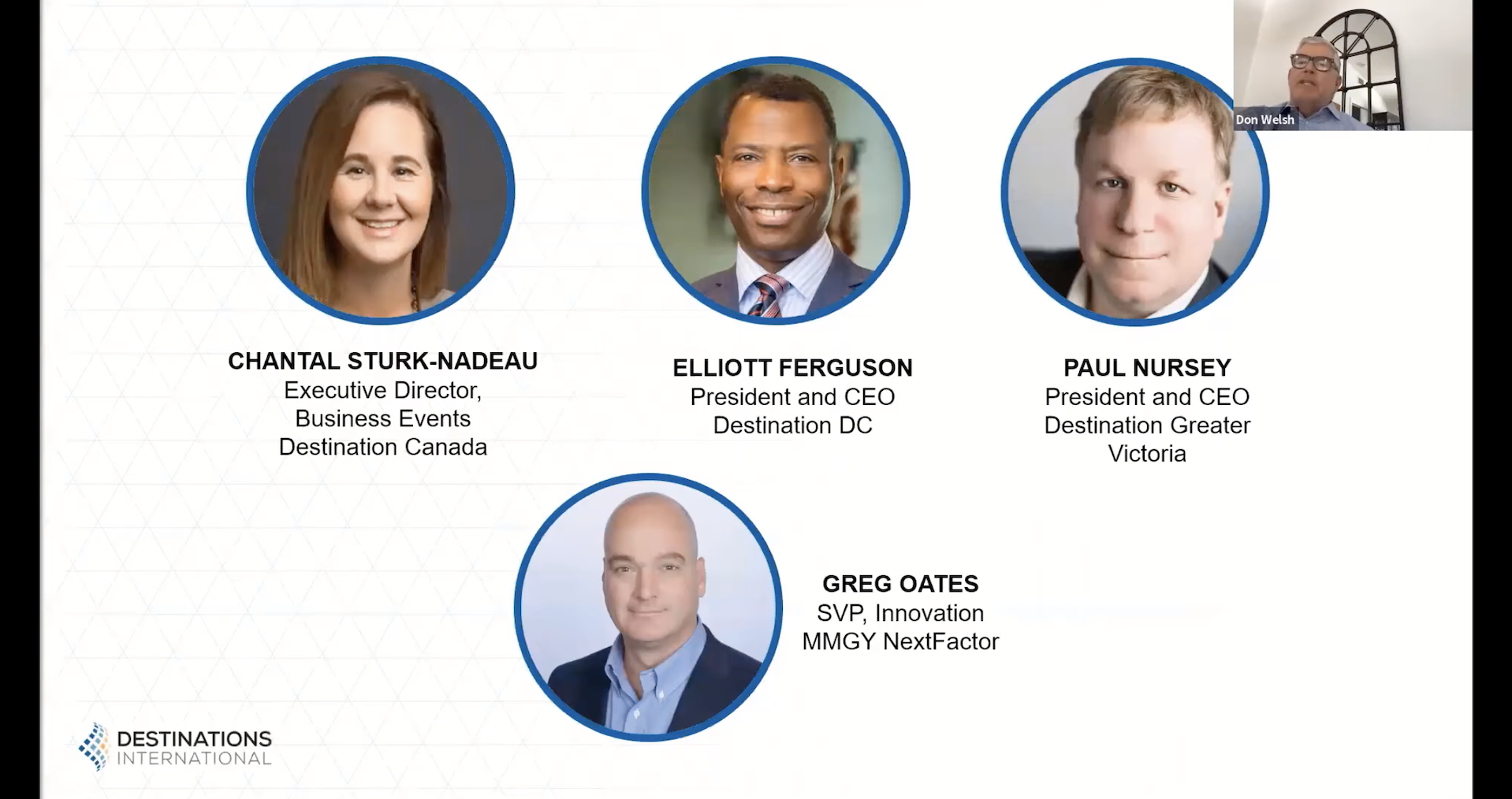While the Covid-19 pandemic ripped most business events from the calendars of hotels and convention centers, some destinations have been using the downtime to sharpen their competitive advantage and become better able to deliver the most value to meeting groups when in-person events return. That was the overarching message from a panel of destination-marketing executives during an online session hosted by PlanetIMEX this week.
Titled “From Response to Recovery: North America Update,” the 45-minute session saw Paul Nursey, president and CEO of Destination Greater Victoria in Canada, admit that destination officials must adapt how they work with planners. “Because of the frothy demand in the couple of years leading up to the pandemic, the relationship between destination marketing organizations and event customers had become interesting. We were able to be somewhat aggressive” in focusing mostly on prospective business that was easier to sell and to service than other prospects.
But as they look to the eventual end of the pandemic, destination marketers realize that the competition for meetings will be fierce and require them to clearly differentiate themselves. One solution: “We must engage our ‘centers of excellence’ to help us appeal to events in specific industries, specialties, and disciplines,” said Chantal Sturk-Nadeau, executive director, business events for Destination Canada. “That’s not just the academic community of a destination but also its corporate base. We must get those leaders” to become part of the effort to draw meetings and conventions to the city.
 Those leaders can be leveraged in two ways. First, they can be ambassadors for the destination within their own industry, proactively recommending the city as a meeting host to their colleagues and to industry associations. Second, they can make available the intellectual resources within their organizations for presentations and panel discussions for conferences that are considering the destination, which would enhance content quality at reduced expense for the meeting host. “I cannot stress how important these ambassadors and champions from academia and business can be for selling the city,” Sturk-Nadeau said.
Those leaders can be leveraged in two ways. First, they can be ambassadors for the destination within their own industry, proactively recommending the city as a meeting host to their colleagues and to industry associations. Second, they can make available the intellectual resources within their organizations for presentations and panel discussions for conferences that are considering the destination, which would enhance content quality at reduced expense for the meeting host. “I cannot stress how important these ambassadors and champions from academia and business can be for selling the city,” Sturk-Nadeau said.
Nursey said that in Victoria, “our thought leadership in marine technology and clean technology has helped us land event business because we make a clear and distinct proposition for learning, not relying on simply touting our event spaces and entertainment offerings.” Elliott Ferguson, president and CEO of Destination DC, added that “up to this point, the Canadian destinations have done a better job in focusing on specific markets and building relationships. We in D.C. are now doing the same thing rather than just saying, ‘Here is our great infrastructure for meetings.’ We are leveraging the braintrust that’s in our city; we’ve been proactively working with entities such as the Smithsonian Institution and universities to be able to deliver that educational value to meetings.”
Lastly, Sturk-Nadeau noted that more destination marketers “are identifying cities worldwide that have a concentrated presence in their desired markets and spending more of their time and resources in those places” rather than simply trying to market to the widest possible audience. “There’s no use in focusing on industries, corporations, and associations that are not going to rebound strongly after the pandemic.”





